Philips Launches New Platform to Enable Development of AI Assets
|
By MedImaging International staff writers Posted on 23 Nov 2018 |
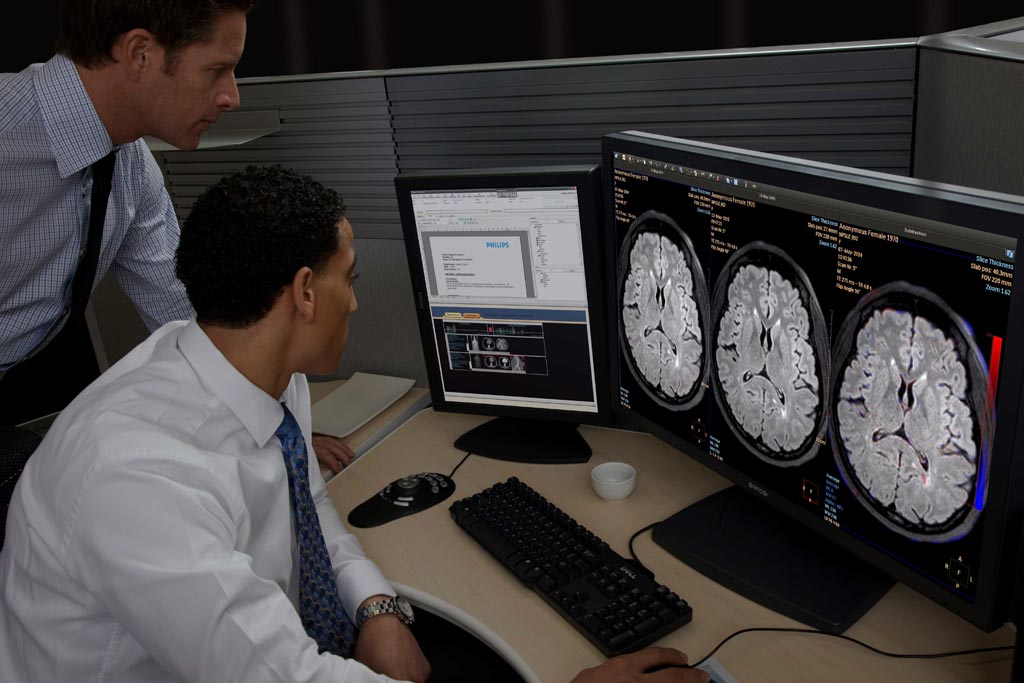
Image: The IntelliSpace Portal advanced visualization and quantification platform (Photo courtesy of Philips Healthcare).
Royal Philips (Amsterdam, the Netherlands) showcased its latest innovations powered by adaptive intelligence at the 2018 Radiological Society of North America Annual Meeting (RSNA), which took place November 25-30, in Chicago, Ill., USA. The company introduced IntelliSpace Discovery 3.0, a comprehensive, open platform to enable the development and deployment of Artificial Intelligence (AI) assets in radiology aimed at supporting radiologists in their clinical and translational research.
Philips combines AI and other technologies with knowledge of the clinical and operational context in which they are used – a people-centered approach called 'adaptive intelligence' – to develop integrated solutions that adapt to the needs of healthcare providers. To support the adoption of AI in key healthcare domains, Philips has developed an AI platform for healthcare – Philips HealthSuite Insights, which delivers healthcare-specific tools and technologies to address the full process of building, maintaining, deploying and scaling AI solutions. The tools and technologies available through HealthSuite Insights already enable machine learning and deep learning applications in diagnostic imaging, telehealth, oncology and genomics.
Philips has further integrated HealthSuite Insights into its enterprise imaging platform with the launch of IntelliSpace Discovery 3.0, a proven research platform, supporting more than 50 hospitals and academic institutions worldwide for the development of radiology applications for rendering, segmentation, and quantification. For example, it is being used for clinical validation and subsequent deployment into the radiology workflow on the Philips IntelliSpace Portal, a comprehensive, advanced data integration, visualization, and analysis platform to enhance diagnostic confidence. The platform combines clinical data from various modalities across the health system using AI to enhance clinical workflows. The latest iteration includes IntelliSpace Portal 10, which features machine learning capabilities to automatically learn from prior application usage to predict the series and data type on which pre-processing should be applied.
With the introduction of IntelliSpace Discovery 3.0, the platform now provides applications and tools for radiologists to aggregate, normalize and anonymize data, which can be visualized and annotated to ‘train’ and validate deep learning algorithms. They can then easily deploy these algorithms as plug-in apps into the research workflow to analyze new datasets and help facilitate clinical research in radiology, oncology, neurology and cardiology, from the workbench to the patient’s bedside.
Among its latest innovations showcased at the RSNA 2018 was Philips Illumeo, an imaging and informatics technology available as part of IntelliSpace Enterprise Edition for Radiology, with adaptive intelligence, combining contextual awareness capabilities with advanced data analytics to augment the work of the radiologist. Pulling data from various hospital sources, the Philips Illumeo software presents a holistic view of the patient and provides relevant tools that adapt to physician needs, offering insights and standardizing their workflow based on their own preferences. Also on display at the event was Philips’ Compressed SENSE, an advanced acceleration application available on its Ingenia Elition 3.0T and Ambition X 1.5T MR systems that uses adaptive intelligence to reduce exam times by up to 50%; and the AI-driven SmartExam analytics for automatic planning, scanning and processing of exams to improve the entire MR workflow, from image acquisition to reading preference.
Philips also showcased its AI for breast, part of the company’s integrated breast ultrasound solution, that enhances reproducibility and streamlines workflow while preserving image quality during breast exams. The automation and intelligence provides visual mapping and annotation of screened anatomy, with minimal user interaction, to give clinicians confidence while documenting full coverage of the breast during the acquisition phase. Available with the Philips EPIQ and Affiniti ultrasound systems, AI for breast is part of all-in-one solution brings together high-quality imaging with complementary clinical tools tailored for breast screenings.
"Together with our customers we're enabling research in adaptive intelligence with the goal to create solutions that augment healthcare professionals and improve patient care and efficiencies of care delivery, both inside and outside of the hospital," said Jeroen Tas, Chief Innovation & Strategy Officer, Philips. "AI is the connective tissue to seamlessly integrate data and technology to enable precision diagnosis. At RSNA 2018, we're showing how AI is laying the foundations for solutions of the future."
Philips combines AI and other technologies with knowledge of the clinical and operational context in which they are used – a people-centered approach called 'adaptive intelligence' – to develop integrated solutions that adapt to the needs of healthcare providers. To support the adoption of AI in key healthcare domains, Philips has developed an AI platform for healthcare – Philips HealthSuite Insights, which delivers healthcare-specific tools and technologies to address the full process of building, maintaining, deploying and scaling AI solutions. The tools and technologies available through HealthSuite Insights already enable machine learning and deep learning applications in diagnostic imaging, telehealth, oncology and genomics.
Philips has further integrated HealthSuite Insights into its enterprise imaging platform with the launch of IntelliSpace Discovery 3.0, a proven research platform, supporting more than 50 hospitals and academic institutions worldwide for the development of radiology applications for rendering, segmentation, and quantification. For example, it is being used for clinical validation and subsequent deployment into the radiology workflow on the Philips IntelliSpace Portal, a comprehensive, advanced data integration, visualization, and analysis platform to enhance diagnostic confidence. The platform combines clinical data from various modalities across the health system using AI to enhance clinical workflows. The latest iteration includes IntelliSpace Portal 10, which features machine learning capabilities to automatically learn from prior application usage to predict the series and data type on which pre-processing should be applied.
With the introduction of IntelliSpace Discovery 3.0, the platform now provides applications and tools for radiologists to aggregate, normalize and anonymize data, which can be visualized and annotated to ‘train’ and validate deep learning algorithms. They can then easily deploy these algorithms as plug-in apps into the research workflow to analyze new datasets and help facilitate clinical research in radiology, oncology, neurology and cardiology, from the workbench to the patient’s bedside.
Among its latest innovations showcased at the RSNA 2018 was Philips Illumeo, an imaging and informatics technology available as part of IntelliSpace Enterprise Edition for Radiology, with adaptive intelligence, combining contextual awareness capabilities with advanced data analytics to augment the work of the radiologist. Pulling data from various hospital sources, the Philips Illumeo software presents a holistic view of the patient and provides relevant tools that adapt to physician needs, offering insights and standardizing their workflow based on their own preferences. Also on display at the event was Philips’ Compressed SENSE, an advanced acceleration application available on its Ingenia Elition 3.0T and Ambition X 1.5T MR systems that uses adaptive intelligence to reduce exam times by up to 50%; and the AI-driven SmartExam analytics for automatic planning, scanning and processing of exams to improve the entire MR workflow, from image acquisition to reading preference.
Philips also showcased its AI for breast, part of the company’s integrated breast ultrasound solution, that enhances reproducibility and streamlines workflow while preserving image quality during breast exams. The automation and intelligence provides visual mapping and annotation of screened anatomy, with minimal user interaction, to give clinicians confidence while documenting full coverage of the breast during the acquisition phase. Available with the Philips EPIQ and Affiniti ultrasound systems, AI for breast is part of all-in-one solution brings together high-quality imaging with complementary clinical tools tailored for breast screenings.
"Together with our customers we're enabling research in adaptive intelligence with the goal to create solutions that augment healthcare professionals and improve patient care and efficiencies of care delivery, both inside and outside of the hospital," said Jeroen Tas, Chief Innovation & Strategy Officer, Philips. "AI is the connective tissue to seamlessly integrate data and technology to enable precision diagnosis. At RSNA 2018, we're showing how AI is laying the foundations for solutions of the future."
Latest RSNA 2018 News
- New AI-Powered Lung Imaging Solution Launched at RSNA 2018
- Agfa Brings Intelligent Radiography to RSNA 2018
- Carestream Displays Several IT Offerings at Radiology Congress
- Double Black Imaging Announces Expanded Clinical LCD Line at Trade Show
- Lunit Unveils AI-Based Mammography Solution at RSNA 2018
- Guerbet Showcases Ongoing Collaboration with IBM Watson at Radiology Trade Fair
- Fujifilm Showcases New DR Detectors and AI Initiative in Chicago
- M*Modal Launches Cloud-Based Version of AI-Powered Reporting Solution
- MDW Unveils First Radiology Blockchain Platform at RSNA 2018
- Teledyne DALSA Displays Xineos Family of CMOS X-ray Detectors
- SuperSonic Imagine Showcases New Ultrasound System at RSNA 2018
- CIVCO Medical Solutions Introduces Next-Generation of Ultrasound Accessories
- Subtle Medical Showcases Al for PET and MRI Scans at RSNA 2018
Channels
Radiography
view channel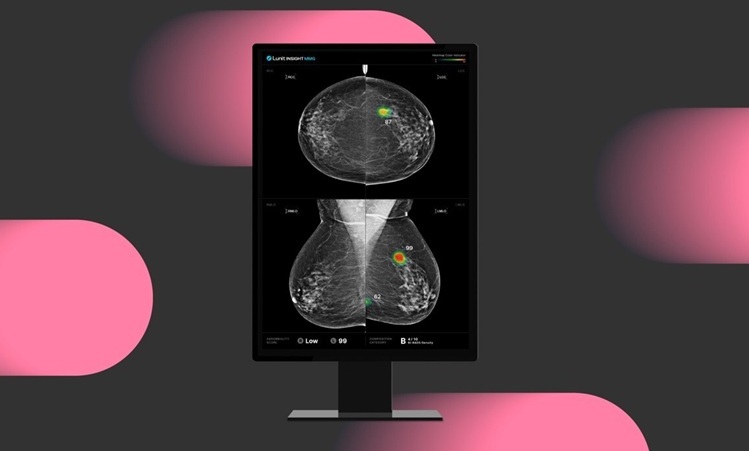
AI-Powered Mammography Screening Boosts Cancer Detection in Single-Reader Settings
A new study has revealed that an artificial intelligence (AI)-powered solution significantly improves cancer detection in single-reader mammography settings without increasing recall rates, offering a... Read more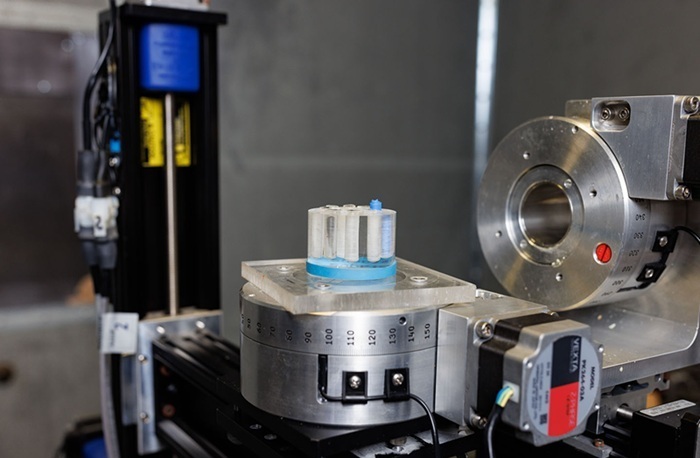
Photon Counting Detectors Promise Fast Color X-Ray Images
For many years, healthcare professionals have depended on traditional 2D X-rays to diagnose common bone fractures, though small fractures or soft tissue damage, such as cancers, can often be missed.... Read moreMRI
view channel
Biparametric MRI Combined with AI Enhances Detection of Clinically Significant Prostate Cancer
Artificial intelligence (AI) technologies are transforming the way medical images are analyzed, offering unprecedented capabilities in quantitatively extracting features that go beyond traditional visual... Read more
First-Of-Its-Kind AI-Driven Brain Imaging Platform to Better Guide Stroke Treatment Options
Each year, approximately 800,000 people in the U.S. experience strokes, with marginalized and minoritized groups being disproportionately affected. Strokes vary in terms of size and location within the... Read moreUltrasound
view channel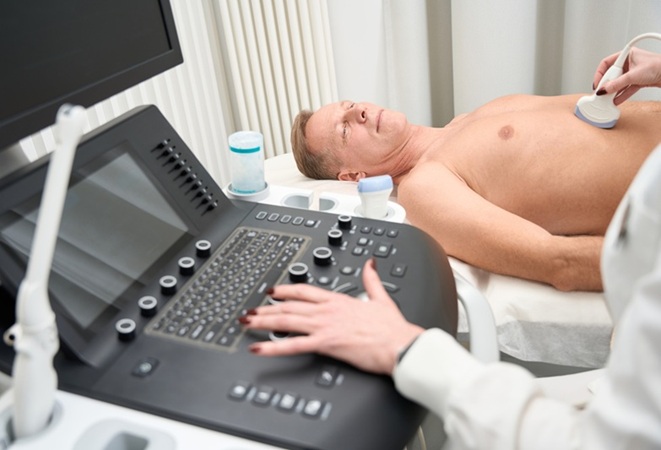
Artificial Intelligence Detects Undiagnosed Liver Disease from Echocardiograms
Echocardiography is a diagnostic procedure that uses ultrasound to visualize the heart and its associated structures. This imaging test is commonly used as an early screening method when doctors suspect... Read more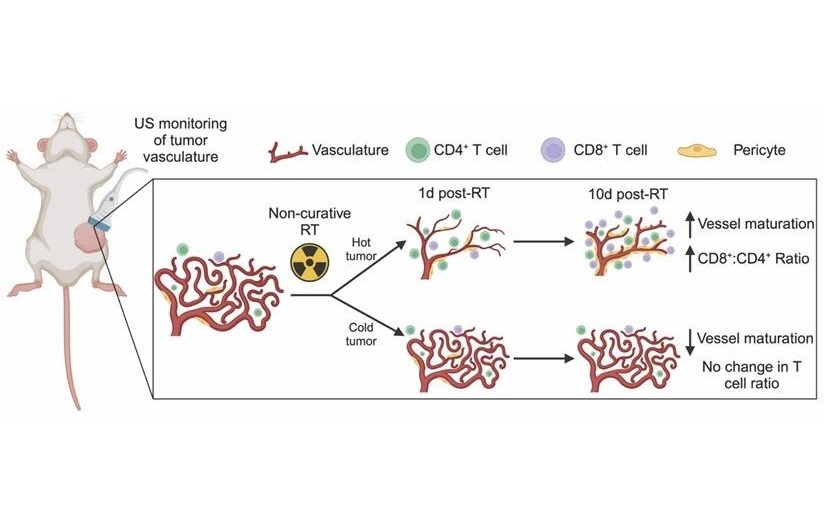
Ultrasound Imaging Non-Invasively Tracks Tumor Response to Radiation and Immunotherapy
While immunotherapy holds promise in the fight against triple-negative breast cancer, many patients fail to respond to current treatments. A major challenge has been predicting and monitoring how individual... Read moreNuclear Medicine
view channel
Novel Radiotracer Identifies Biomarker for Triple-Negative Breast Cancer
Triple-negative breast cancer (TNBC), which represents 15-20% of all breast cancer cases, is one of the most aggressive subtypes, with a five-year survival rate of about 40%. Due to its significant heterogeneity... Read more
Innovative PET Imaging Technique to Help Diagnose Neurodegeneration
Neurodegenerative diseases, such as amyotrophic lateral sclerosis (ALS) and Alzheimer’s disease, are often diagnosed only after physical symptoms appear, by which time treatment may no longer be effective.... Read moreGeneral/Advanced Imaging
view channel
AI Reduces CT Lung Cancer Screening Workload by Almost 80%
Lung cancer impacts over 48,000 individuals in the UK annually, and early detection is key to improving survival rates. The UK Lung Cancer Screening (UKLS) trial has already shown that low-dose CT (LDCT)... Read more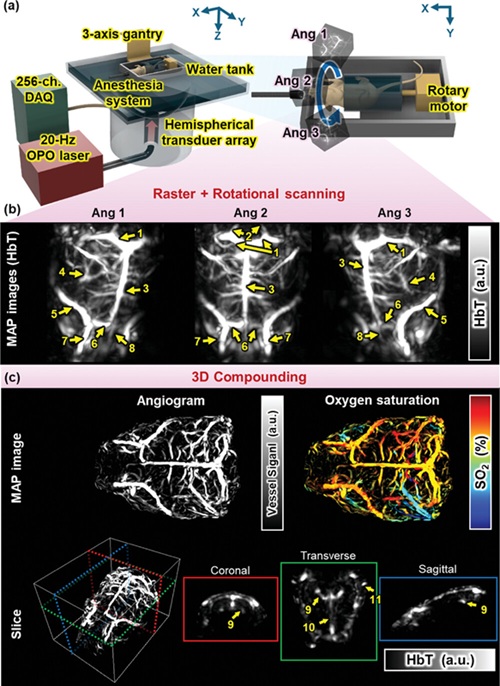
Cutting-Edge Technology Combines Light and Sound for Real-Time Stroke Monitoring
Stroke is the second leading cause of death globally, claiming millions of lives each year. Ischemic stroke, in particular, occurs when a blood vessel that supplies blood to the brain becomes blocked.... Read more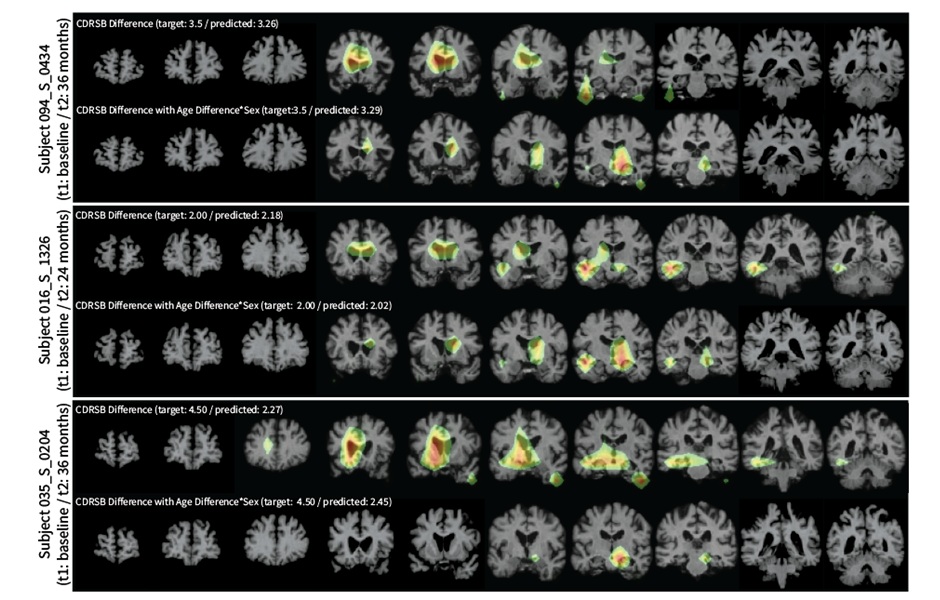
AI System Detects Subtle Changes in Series of Medical Images Over Time
Traditional approaches for analyzing longitudinal image datasets typically require significant customization and extensive pre-processing. For instance, in studies of the brain, researchers often begin... Read more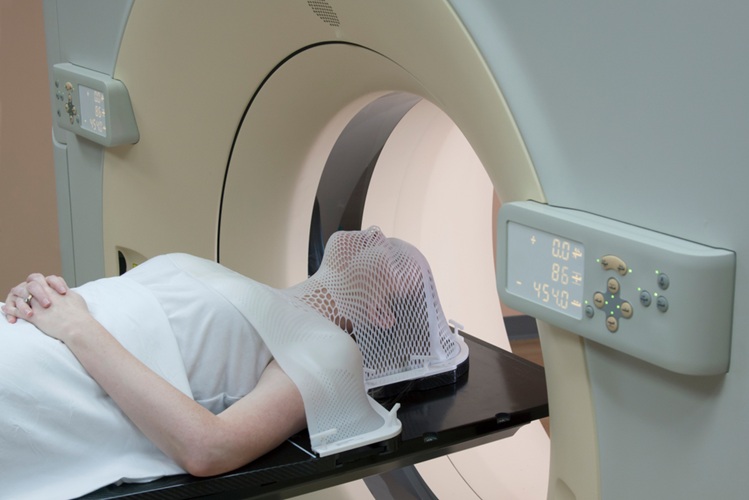
New CT Scan Technique to Improve Prognosis and Treatments for Head and Neck Cancers
Cancers of the mouth, nose, and throat are becoming increasingly common in the U.S., particularly among younger individuals. Approximately 60,000 new cases are diagnosed annually, with 20% of these cases... Read moreImaging IT
view channel
New Google Cloud Medical Imaging Suite Makes Imaging Healthcare Data More Accessible
Medical imaging is a critical tool used to diagnose patients, and there are billions of medical images scanned globally each year. Imaging data accounts for about 90% of all healthcare data1 and, until... Read more
Global AI in Medical Diagnostics Market to Be Driven by Demand for Image Recognition in Radiology
The global artificial intelligence (AI) in medical diagnostics market is expanding with early disease detection being one of its key applications and image recognition becoming a compelling consumer proposition... Read moreIndustry News
view channel
Siemens and Sectra Collaborate on Enhancing Radiology Workflows
Siemens Healthineers (Forchheim, Germany) and Sectra (Linköping, Sweden) have entered into a collaboration aimed at enhancing radiologists' diagnostic capabilities and, in turn, improving patient care... Read more













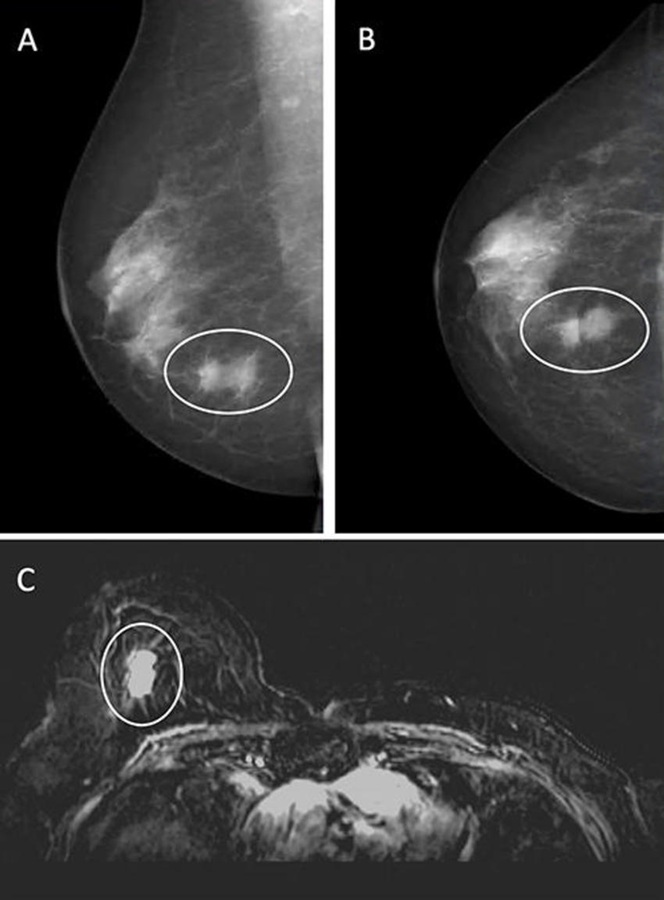
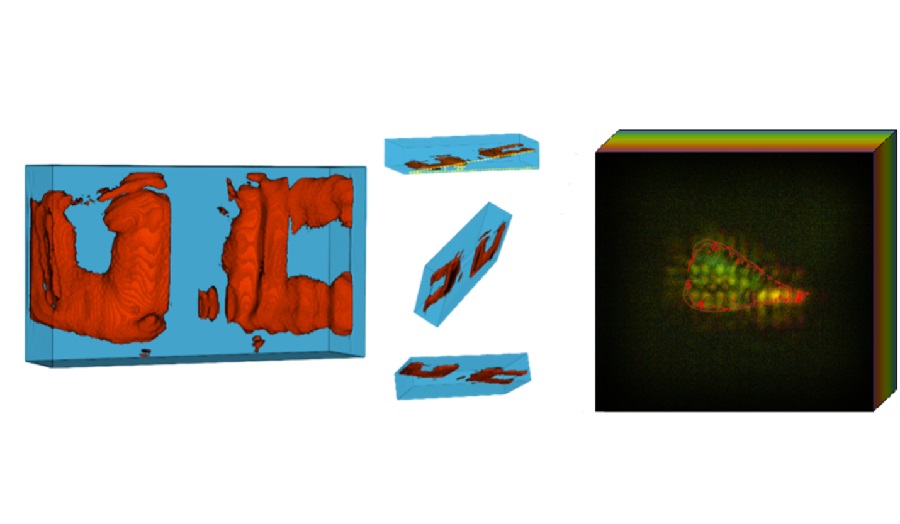

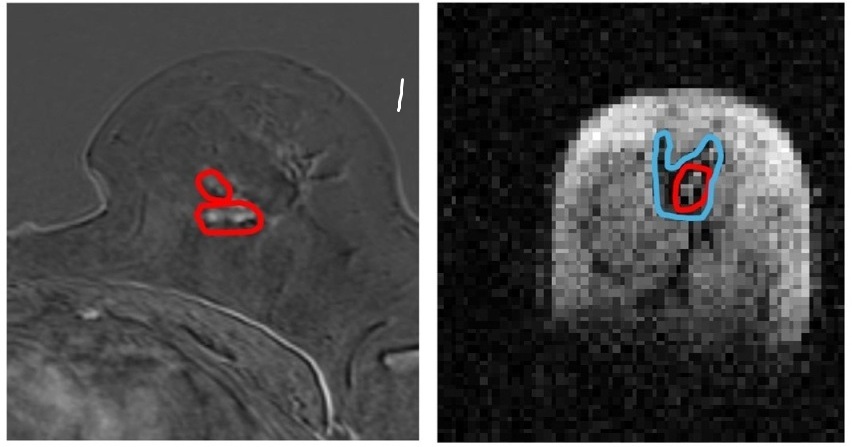
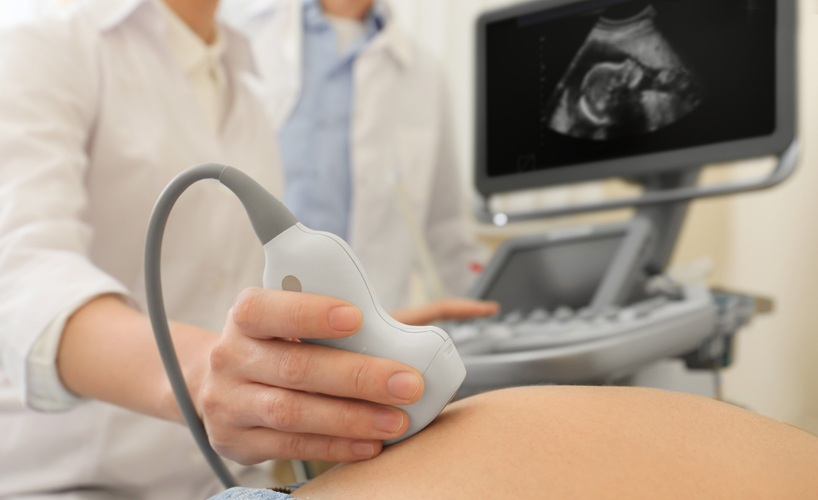

![Image: [18F]3F4AP in a human subject after mild incomplete spinal cord injury (Photo courtesy of The Journal of Nuclear Medicine, DOI:10.2967/jnumed.124.268242) Image: [18F]3F4AP in a human subject after mild incomplete spinal cord injury (Photo courtesy of The Journal of Nuclear Medicine, DOI:10.2967/jnumed.124.268242)](https://globetechcdn.com/mobile_medicalimaging/images/stories/articles/article_images/2025-02-24/Brugarolas_F8.large.jpg)


.jpg)
.jpeg)